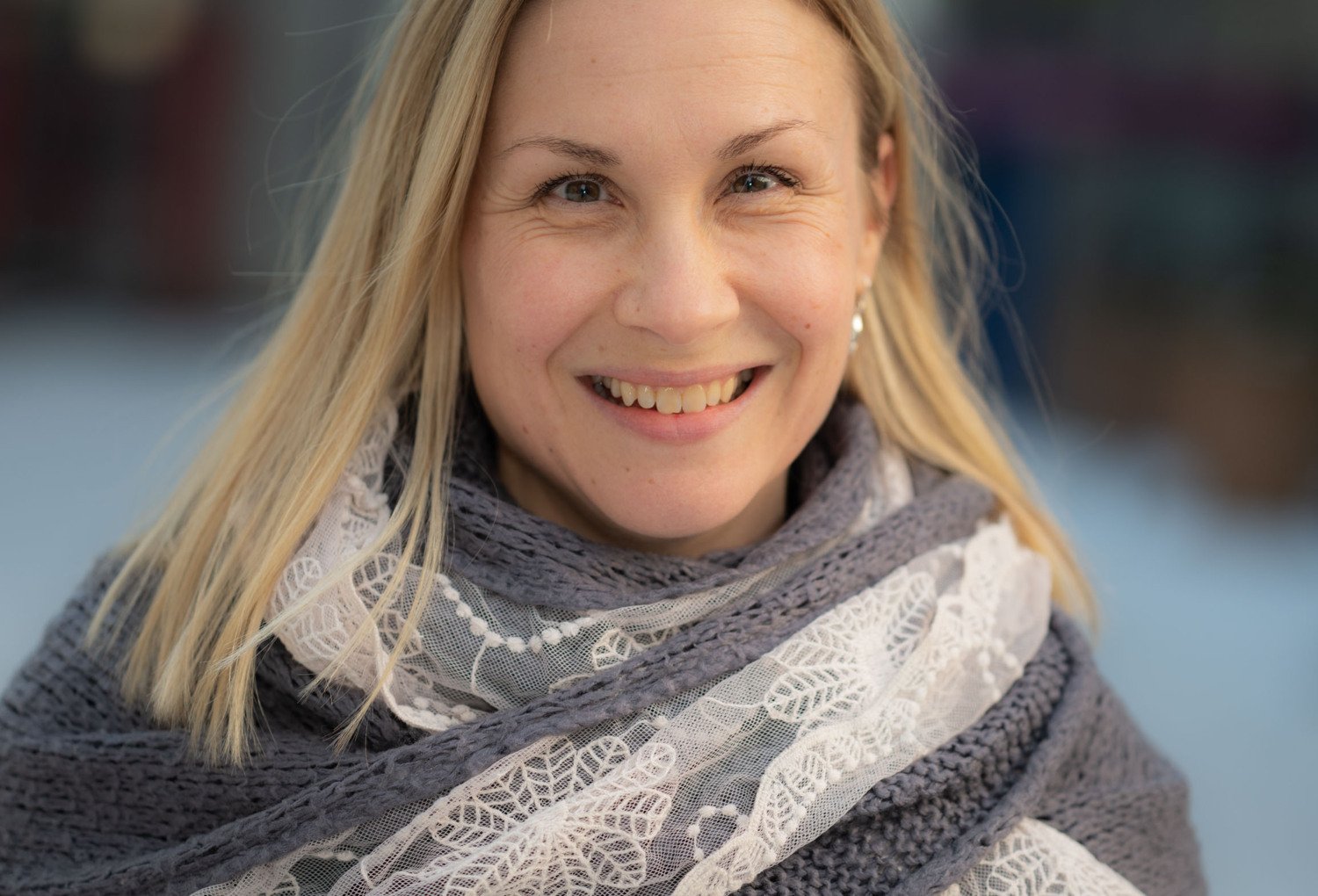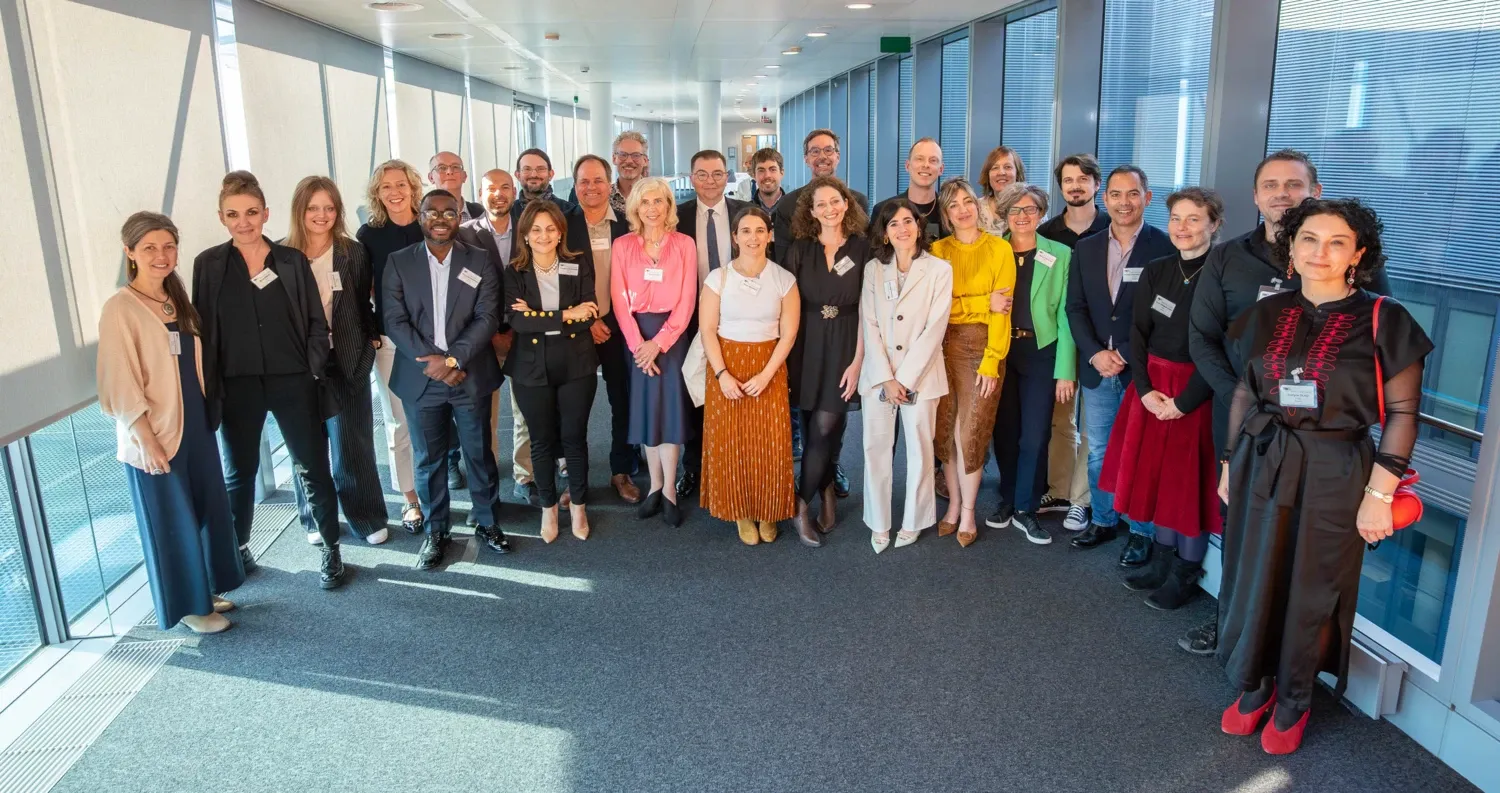Pauliina Damdimopoulou appointed new professor — and ERC ambassador

KI researcher Pauliina Damdimopoulou is currently experiencing a lot of activity. At the end of April this year, she was appointed ERC ambassador — and just a few days later, she became a professor of reproductive biology at the Department of Women's and Children's Health. Now she looks forward to building new collaborations to strengthen research on women's and children's health.
"It feels surreal but wonderful. I have had a strong connection to KI for over 20 years, and I look forward to continuing to contribute through research, teaching, and public engagement," says Pauliina Damdimopoulou.
How do today’s chemicals affect our ovaries and fertility? This is the question that has driven Pauliina Damdimopoulou's research for over a decade. Her work focuses on how the environment - particularly increased exposure to chemicals - affects female reproductive capacity.
She emphasises that women are born with all their egg cells already formed, making them particularly vulnerable to lifelong environmental influences, from the fetal stage to adulthood.
"We know that certain treatments, such as chemotherapy, can damage the ovaries, but we still know far too little about how chemical pollution in the environment impacts fertility," she explains.
During her postdoctoral research in Paris, she worked with fish eggs and frog embryos to develop biosensors for water pollutants. Her interest in reproduction and environmental chemicals grew, and she returned to Sweden and KI to delve deeper into ovarian and embryonic biology. Ten years ago, she established her own laboratory at Swetox, Swedish Toxicology Sciences Research Center, where she has since integrated her background in biochemistry, environmental science, and reproduction.
ERC grant and ambassadorship

In 2023, Pauliina Damdimopoulou was awarded a prestigious grant from the European Research Council (ERC). The funding marked not only financial support but also a significant recognition of her research. Recently, she was also appointed as Sweden's representative in the newly established network of ERC ambassadors. The aim of the initiative is to promote investments in cutting-edge research and highlight the importance of research for the economy and society. Behind the network, in addition to the ERC, is also the Association of ERC Grantees (AERG).
As an ERC ambassador, she wants to advocate for the importance of academic freedom, without political control or predetermined research agendas.
"It was a crucial milestone. Gaining ERC support demonstrated that my ideas are relevant and have the potential to make a difference. It also motivated me to become an ERC ambassador. We must safeguard researchers’ freedom to pursue their own ideas—that is how innovation and long-term societal benefit are achieved," says Pauliina Damdimopoulou.
A new phase and new opportunities
The research group is currently relocating from Flemingsberg to Solna, a transitional phase that also marks a fresh start. New colleagues, new team members, and new collaborations lie ahead.
"I am eager to get everything in place. The future looks exciting, not least with our new projects funded by the ERC, the Swedish Research Council, the Swedish Childhood Cancer Fund, and StratRegen. This is a unique opportunity to advance knowledge on women’s health at a time of increasing environmental impact," says Pauliina Damdimopoulou.
In her spare time, she unwinds through kickboxing, a way to clear her mind after intense workdays.
